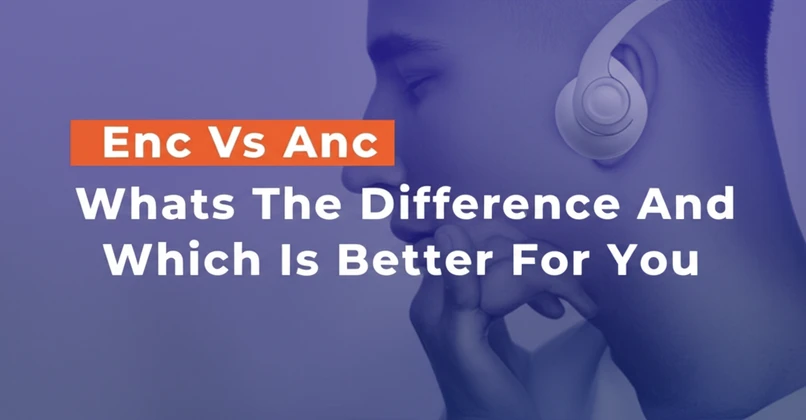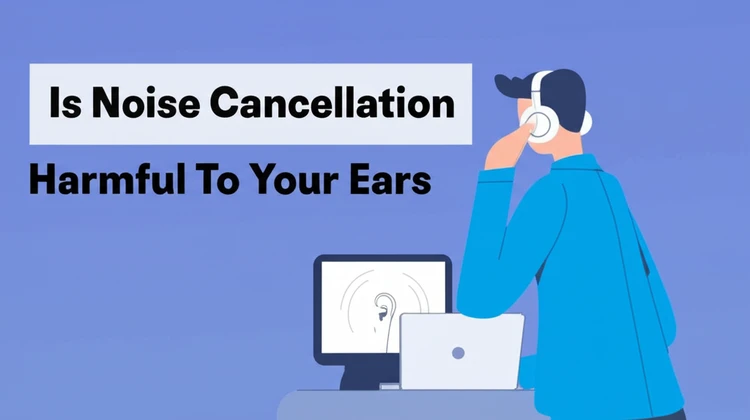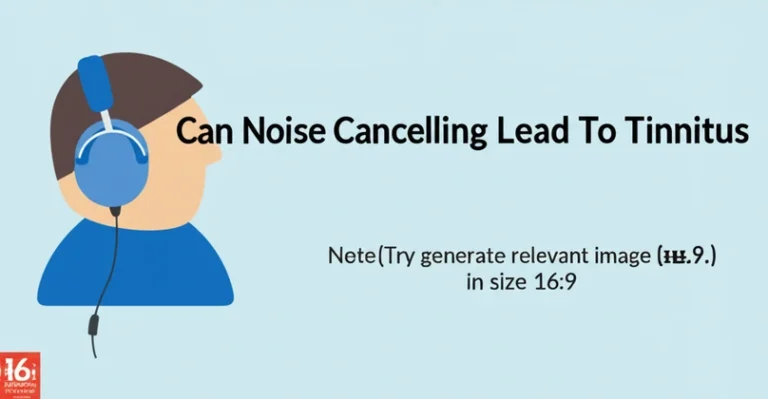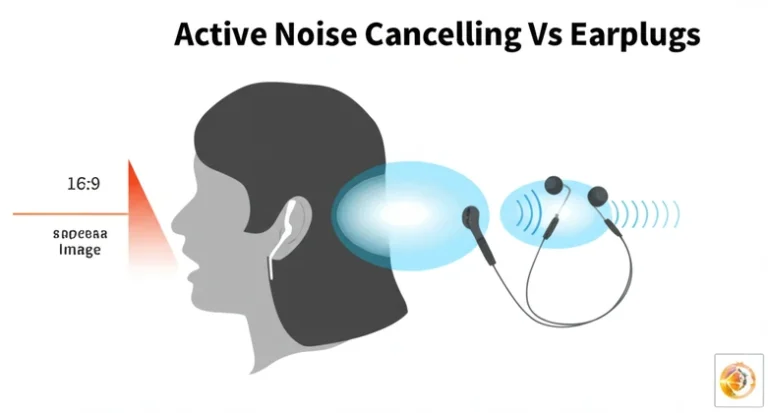
In today’s world, unwanted noise can be a constant distraction, whether you’re on a busy commute, in a bustling office, or trying to relax at home. Noise-canceling technology offers a solution, but with different types available, understanding the difference is crucial. This article dives into ENC vs ANC, what’s the difference and which is better for you, covering everything from the underlying technology to specific use cases and helping you choose the perfect noise-canceling solution for your needs.
What Is ENC?
ENC, or Environmental Noise Cancellation, is a technology specifically designed to improve the clarity of your voice during calls by minimizing background noise.
It uses sophisticated algorithms to identify and filter out unwanted sounds like traffic, keyboard clicks, or nearby conversations, ensuring that your voice is transmitted clearly to the other end of the call. ENC prioritizes:
- Reducing ambient noise for calls: ENC excels in noisy environments like open offices, coffee shops, or busy streets, making it ideal for clear communication on the go.
- Optimizing voice clarity: By isolating your voice from the surrounding noise, ENC ensures the person you’re speaking to hears you clearly, without distractions.
Use Cases for ENC
ENC is particularly beneficial for:
- Professionals who frequently make calls in busy environments.
- Gamers requiring clear communication during team play.
- Individuals using voice assistants in noisy settings.
- Anyone who wants clearer phone calls in challenging environments.
Devices like Bluetooth headsets, wireless earbuds, and gaming headphones often incorporate ENC for enhanced call clarity.
What Is ANC?
ANC, or Active Noise Cancellation, takes a different approach to noise-canceling technology. Instead of focusing on isolating your voice, ANC aims to create a quieter listening environment by actively blocking external sounds.
It uses microphones to detect incoming noise and then generates “anti-noise” sound waves that cancel out the unwanted sounds through destructive interference. ANC is most effective against consistent, low-frequency noises like the drone of an airplane engine, the hum of an air conditioner, or the rumble of a train. It is less effective against sudden, sharp sounds like a dog barking or a door slamming.
ANC creates an immersive listening experience, perfect for:
- Drowning out ambient sounds: Ideal for flights, public transport, or noisy neighborhoods.
- Enhancing focus: Helps users concentrate in chaotic environments by minimizing auditory distractions.
- Improving the enjoyment of music and other audio content: By reducing background noise, ANC allows you to hear finer details and nuances in your audio.
How ANC Works
ANC uses microphones to capture external noise. A processing chip analyzes this noise and generates an inverse sound wave. This anti-noise is then played through the headphones’ speakers, effectively canceling out the original noise wave through destructive interference.
There are different types of ANC, including feedforward, feedback, and hybrid ANC, each with its own strengths and weaknesses. Feedforward ANC places the microphone outside the earcup, feedback ANC places it inside, and hybrid ANC combines both for a wider range of noise cancellation.
Key Differences Between ENC and ANC
| Feature | ENC | ANC |
|---|---|---|
| Primary Purpose | Improves call clarity | Blocks external noise |
| Focus | Isolates your voice from background noise | Creates a quiet listening environment |
| Use Cases | Calls, voice communication, online meetings | Music, podcasts, focus, relaxation, travel |
| Technology | Software-based noise filtering | Microphone and soundwave-based noise cancellation |
| Effective Noise Types | Variable, ambient sounds during calls | Primarily constant, low-frequency noises |
Choosing the Right One: ENC vs ANC – Which is Better for You?
The best choice between ENC and ANC depends entirely on your needs and priorities. If clear communication in noisy environments is paramount, ENC is the better option.
If you prioritize immersive listening and blocking out external sounds, ANC is the way to go. Some devices offer both technologies, providing the best of both worlds.
Scenarios and Recommendations:
- Frequent callers in noisy environments: Prioritize ENC.
- Commuters on public transport: ANC is ideal for blocking out engine noise and other ambient sounds.
- Office workers in open-plan spaces: ANC can help create a more focused work environment.
- Music lovers seeking immersive listening: ANC enhances music enjoyment by reducing distractions.
How ENC and ANC Impact Sound Quality
ENC’s Effect on Audio
ENC primarily focuses on voice transmission during calls. It doesn’t significantly affect music or video playback quality, but it’s not designed to enhance those listening experiences.
ANC’s Effect on Audio
ANC can significantly improve music and video audio quality by reducing background noise, allowing you to hear subtle details previously masked by ambient sounds.
However, some less expensive ANC implementations can introduce slight alterations to the audio frequencies, sometimes described as a “pressure” sensation or a slight loss of fidelity.
Battery Life Considerations
ENC and Battery Usage
ENC generally has a minimal impact on battery life due to its software-based approach.
ANC and Battery Usage
ANC requires more power due to the active generation of anti-noise, leading to faster battery drain. Many modern devices with ANC offer power-saving modes or optimized chipsets to mitigate this impact.
FAQs
Can ENC and ANC Be Used Together?
Yes, many premium headphones and earbuds now offer both ENC and ANC, providing a comprehensive noise-canceling technology solution for both calls and listening.
Which Is Better for Calls: ENC or ANC?
ENC is specifically designed for calls and is generally more effective at isolating your voice and reducing background noise for clearer communication.
Does ANC Affect Music Quality?
While high-quality ANC can enhance music quality, poorly implemented ANC can sometimes slightly affect audio frequencies. This is less common in premium devices.
Are ENC and ANC Suitable for Outdoor Use?
ENC works well outdoors for calls.
ANC can be effective outdoors, but performs best in environments with consistent noise patterns, as it struggles to adapt to sudden, loud noises.
The Bottom Line
Both ENC and ANC offer valuable benefits for different situations. ENC excels at improving call clarity by reducing background noise, while ANC creates a tranquil listening experience by actively canceling external sounds. Understanding the distinctions between ENC and ANC empowers you to choose the technology best suited to your individual needs.
Consider your priorities – clear communication, immersive listening, or a combination of both – to select the perfect noise-canceling solution for your lifestyle.






